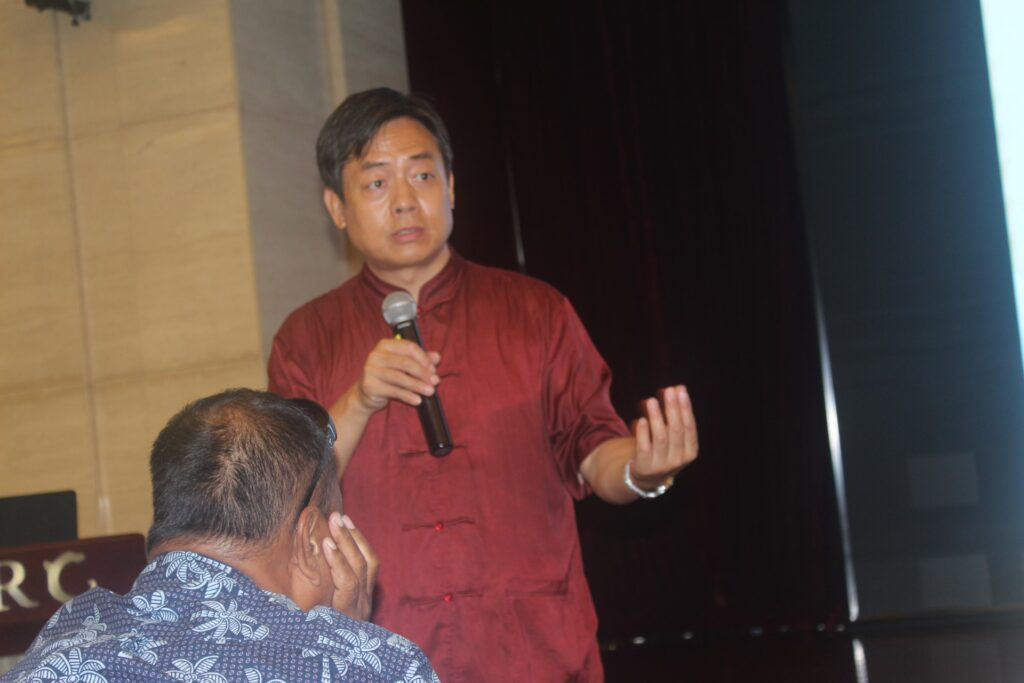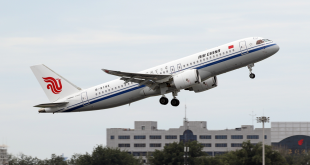Published: August 14,2023

China has invested $155 billion in infrastructure projects in sub-Saharan Africa over the last two decades, according to research.
A Chinese academic, Professor Wang Yiwei, Director of Renmin University of China’s Institute of International Affairs, has urged African leaders to work together to maximize the benefits of the Belt and Road Initiative (BRI) for long-term development.
He said Africa needed a united front to facilitate industrial collaboration and boost infrastructure development.
Prof. Yiwei said these at a lecture for journalists at a Beijing exchange programme themed “BRI in Ten Years: Progress, Problems, and Prospects.”
He said the investments in infrastructure development will not only increase local employment but would also result in skills development, managerial experience, technology transfer, and lowering of Africa’s unemployment rate.
The Belt and Road Initiative is a Chinese strategy introduced in 2013 to connect Asia with Africa and Europe through land and sea networks to promote regional integration, increase commerce, and stimulate economic growth.
The initiative specifies five key priorities: policy cooperation, infrastructural interconnection, unhindered trade, financial integration, and people-to-people connections.
Prof Yiwei indicated that Africa had 40 per cent of the world’s young population and advocated for investment in industrialisation, agriculture, and other development initiatives to encourage the region’s needed growth.
He noted that the Initiative had made substantial contributions to the growth of Africa’s economies, including infrastructure development, job creation, and enhanced trade.
“China and its partners have spent $4 trillion under the BRI, with 153 countries, including sub-Saharan Africa, Europe, Central Asia, East Asia, and the Pacific, signing up for the programme”, Prof. Yiwei said.
According to research, China has invested $155 billion in infrastructure projects in Sub-Saharan Africa over the last two decades.
In Africa, the Initiative has made significant progress on several projects, including the Mali-Guinea cross-country railway, the Chad-Cameroon oil pipeline, Sudan (Port Sudan)-Chad-Niger-Mali-Senegal (Dakar Port) railway line, and the Central African Republic-Chad water diversion project.
According to Prof. Yiwei, these initiatives were made possible by China’s philosophy of “If you want to get rich, build roads first; if you want to get richer, build the motor road; if you want to get richest, build the Internet road; and if you want to get rich together, connect the road with China and the world.”
He stated that Ghana was one of the African countries benefiting from infrastructure developments under the Initiative, and that “Ghana needs a regional hub to share ideas on transportation and technological advancement.”
Ghana has signed a bilateral deal with Beijing under the BRI to finance $2 billion in infrastructure projects such as railroads, roads, and bridges.
“With the support of 152 countries and 32 international organizations, the BRI is fast becoming a belt of prosperity benefiting the world and a road of happiness benefiting all peoples,” Prof. Yiwei said.
Prof. Yiwei noted that due to COVID-19, China was the largest official creditor to poor nations under the BRI, including debt to the International Monetary Fund, Paris Club states, and the World Bank.
Due to the problems, he added that China had instituted a debt-payment moratorium for 77 less-developed countries as part of its active participation in the Group of Twenty Debt Relief Initiative.
Prof Yiwei remarked that China would strengthen efforts for other developing countries to develop green and low-carbon energy, with the goal of peaking carbon dioxide emissions before 2030 and attaining carbon neutrality before 2060.
“Industry is the pillar of the economy; finance is the lifeblood of the modern economy; and infrastructure connectivity is the cornerstone of development,” he said.
ghanabusinessnews.com
 Africa -China Review Africa -China Cooperation and Transformation
Africa -China Review Africa -China Cooperation and Transformation
